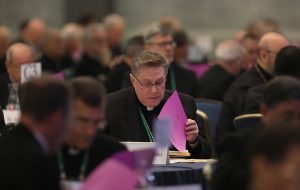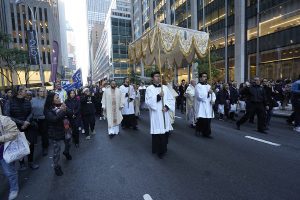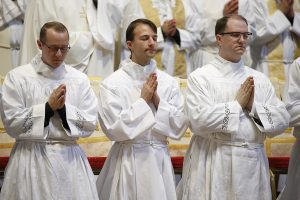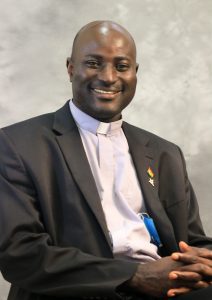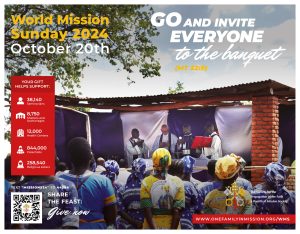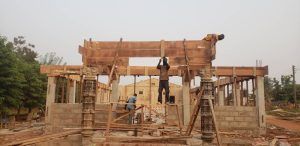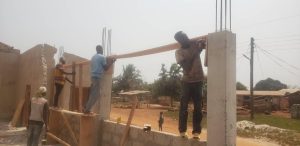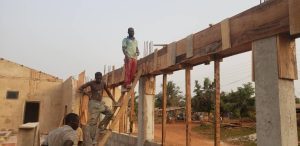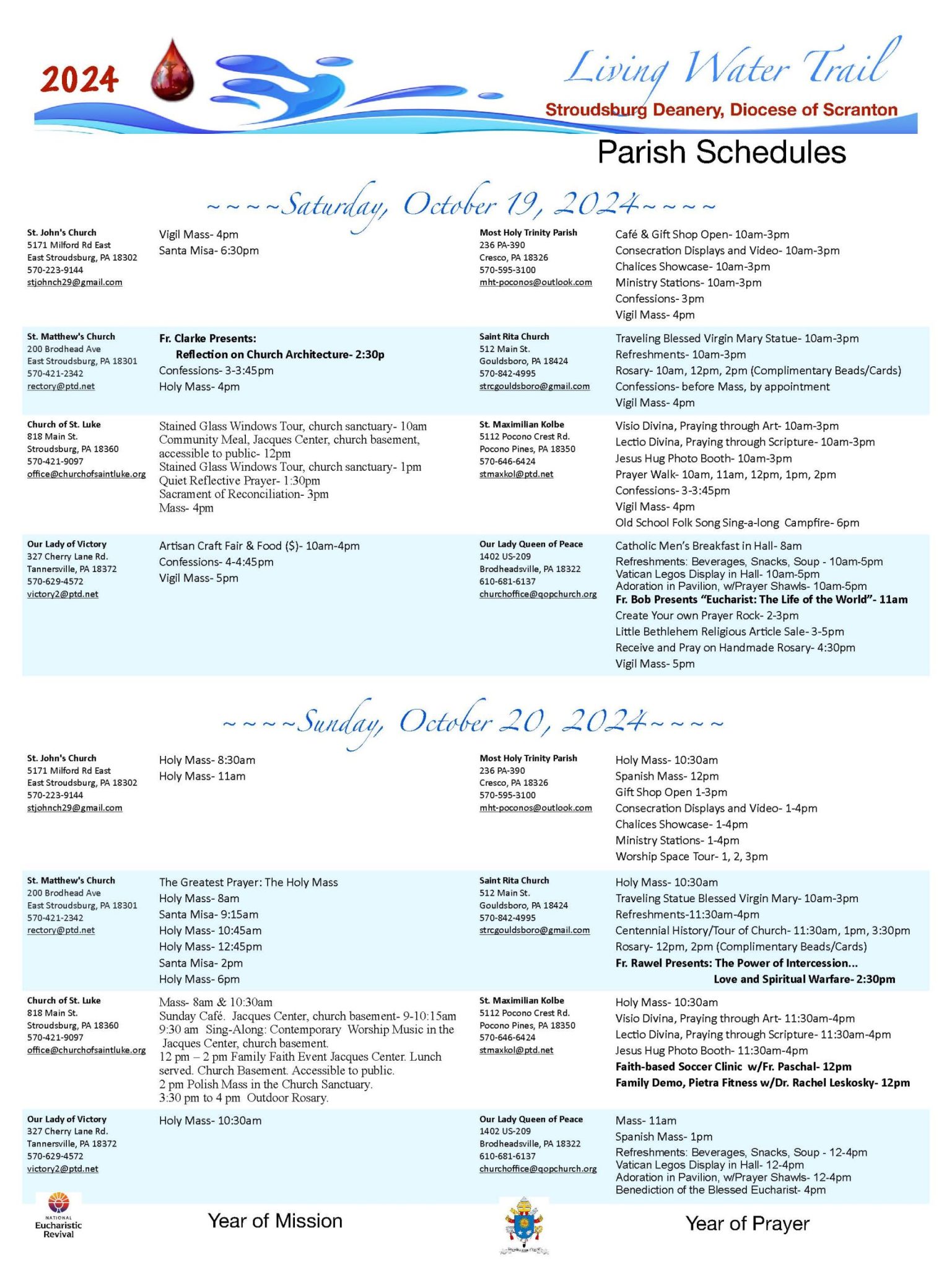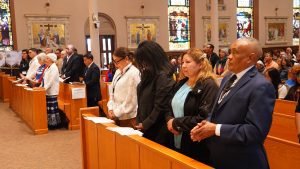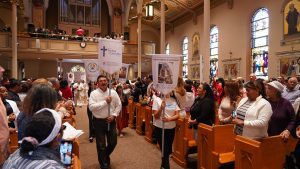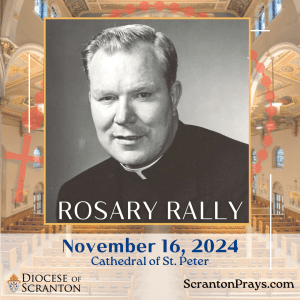VATICAN CITY (CNS) – Pope Francis called on the faithful to yearn to serve, not thirst for power, as he proclaimed 14 new saints, including Canada-born St. Marie-Léonie Paradis, founder of the Little Sisters of the Holy Family, and 11 martyrs.
“Those who dominate do not win, only those who serve out of love,” he said Oct. 20.
“When we learn to serve, our every gesture of attention and care, every expression of tenderness, every work of mercy becomes a reflection of God’s love,” he said. “And so, we continue Jesus’ work in the world.”
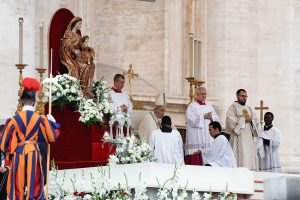
The pope said the new saints lived Jesus’ way of service. “The faith and the apostolate they carried out did not feed their worldly desires and hunger for power but, on the contrary, they made themselves servants of their brothers and sisters, creative in doing the good, steadfast in difficulties and generous to the end.”
On World Mission Sunday in St. Peter’s Square, during the synod on synodality, the pope created the following new saints:
— Italian missionary Giuseppe Allamano (1851-1926) founder of the Consolata Missionaries.
— Eight Franciscan friars, including Manuel Ruiz López, and three Maronite laymen who were martyred in Syria in 1860. Seven of the Franciscans were from Spain and one was from Austria while the Maronite laymen were blood brothers. They were murdered in St. Paul’s Church and convent in Damascus the night between July 9 and 10, 1860, by Druze militants.
— Canada-born Mother Marie-Léonie Paradis, founder of the Little Sisters of the Holy Family. Born in L’Acadie, Quebec, in 1840, she had various teaching assignments in Canada before being sent to teach at St. Vincent’s orphanage in New York. She died in 1912 in Sherbrooke, Canada.
— Sister Elena Guerra (1835-1914), an Italian nun who founded the Oblates of the Holy Spirit.
Tens of thousands of people attended the Mass, including the more than 300 cardinals, bishops and others taking part in the Oct. 2-27 synod on synodality. Dignitaries from Canada, Spain and Italy, including Italian President Sergio Mattarella, were present for the canonization and Mass.
In his homily, the pope pointed to the new saints as inspiring examples of “men and women who served in martyrdom and in joy” and who remained faithful servants “throughout the troubled history of humanity.”
“This is what we should yearn for: not power, but service. Service is the Christian way of life,” he said.
Jesus listened to his disciples and asked them questions that revealed what was truly in their hearts, the “hidden expectations and dreams of glory” they secretly cultivated, the pope said. “Many times in the church, these thoughts (desiring) honor, power emerge.”
But Jesus helps change their perspective by revealing he was not the Messiah of worldly power and victory, the pope said. “He is the God of love, who stoops down to reach the one who has sunk low, who makes himself weak to raise up the weak, who works for peace and not for war, who has come to serve and not to be served.”
Jesus’ teachings about service, Pope Francis said, “are often incomprehensible to us as they were to the disciples, yet by following him, by walking in his footsteps and welcoming the gift of his love that transforms our way of thinking, we too can learn God’s way of service.”
Serving others is “not about a list of things to do” that can be checked off and completed so that person can say he or she did his or her part, he said.
Service isn’t a job, it does not “just do things to bring about results, it is not occasional,” he said. It is “born from love, and love knows no bounds, it makes no calculations, it spends, and it gives.”
Before leading the recitation of the Angelus after Mass, the pope urged Catholics to support the world’s missionaries with their prayers and concrete assistance. These men and women bring the Gospel message “often with great sacrifice.”
And, he said, every Christian is called to take part in this mission by being courageous and joyful witnesses to the Gospel in every aspect of their life.
“We continue to pray for people who suffer because of war,” he said, such as “martyred Palestine, Israel, Lebanon, martyred Ukraine, Sudan, Myanmar and all the others.”
The pope also appealed to political and civil authorities in the Amazon region to guarantee the protection of the Indigenous peoples in the Amazon, including their fundamental rights, “against every kind of exploitation of their dignity and their territories.”
The pope highlighted the presence at the Mass of representatives of the Yanomami people, an Indigenous ethnic group living in the forest between Brazil and Venezuela. The second miracle needed for the canonization of St. Allamano involved a member of the community, Sorino Yanomami, who had been seriously wounded in the head by a jaguar and survived.

